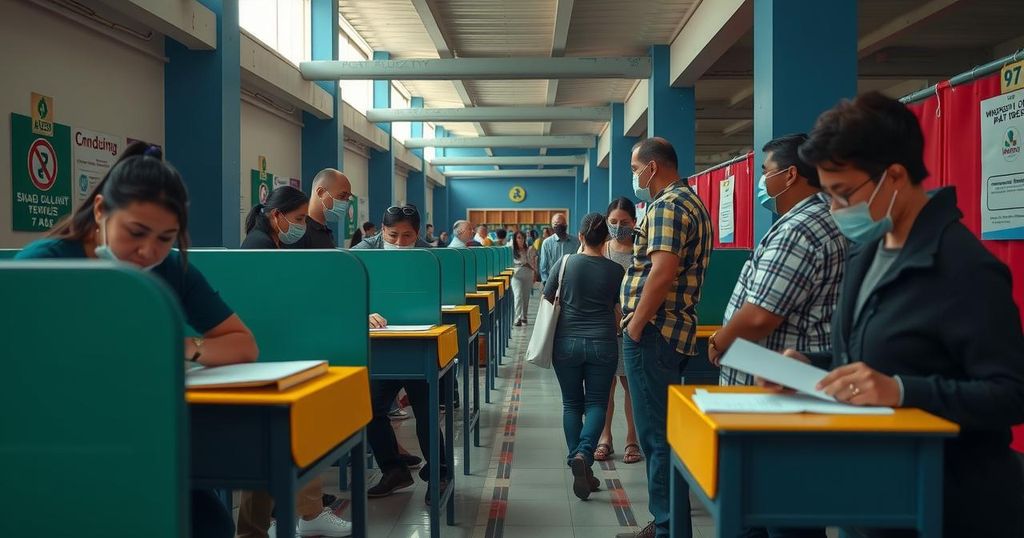Uruguay faces a pivotal presidential runoff as voters decide between center-left candidate Yamandu Orsi and conservative Alvaro Delgado. Recent polls indicate a fierce competition, potentially settled by less than 25,000 votes. The election takes place in a context of political stability and moderate sentiment, contrasting sharply with trends seen in neighboring countries. Orsi aims for a “modern left” approach while Delgado seeks continuity of the current administration, amid considerations of the recent economic climate affecting voter sentiment.
As Uruguay prepares to cast its votes in a nail-biting presidential runoff, the nation is set to witness a competitive clash between two moderate candidates. Center-left candidate Yamandu Orsi, representing the Broad Front, is pitted against conservative Alvaro Delgado, who has garnered support from the Colorado Party. Recent opinion polling indicates a remarkably close race, potentially decided by a mere 25,000 votes, reflecting a shift in voter dynamics within the small nation of 3.4 million, known for its political stability and progressive policies.
The upcoming election is marked by Uruguay’s comparatively tranquil political landscape, in stark contrast to the polarized electorates seen in neighboring countries such as Argentina and Brazil. Both candidates are seeking to secure the votes of approximately 8% of the electorate that chose smaller, unaligned parties in the first round, as well as those who abstained from voting. The electoral process will commence at 8 a.m. and close at 7:30 p.m. local time, with preliminary results anticipated shortly thereafter.
Yamandu Orsi aims to champion a “modern left” approach, while Alvaro Delgado calls for the continuation of the current government’s policies, leveraging President Lacalle Pou’s popularity. Notably, neither party achieved an absolute majority in the lower house following the October elections, although Orsi’s Broad Front secured a significant presence in the Senate, which he posits strengthens his governance potential. Voter sentiment appears to be split, as indicated by a recently conducted debate that did not significantly impact public opinion.
As the electoral activities unfold, analysts speculate on the implications of global trends affecting voter preferences, questioning whether Uruguay will resist the broader patterns of declining support for incumbent parties, especially against the backdrop of ongoing inflation and rising living costs impacting nations worldwide.
Uruguay stands as a beacon of political stability and progressive social policies in South America. With a population of approximately 3.4 million, the nation has seen a shift towards moderate political competition over the past few elections. The current presidential race features a runoff between two candidates representing different ends of the political spectrum but both commit to maintaining Uruguay’s centrist tradition. Recent elections have revealed a growing divide in other Latin American countries, making Uruguay’s situation particularly noteworthy as they face their unique electoral challenges amid the effects of inflation and global political trends.
The impending presidential election in Uruguay is poised to be a closely contested event between candidates Yamandu Orsi and Alvaro Delgado. With significant implications for the future direction of the country, both contenders are vying for a mandate in the context of previous electoral dynamics. The outcome may reflect broader trends affecting incumbents globally, but Uruguay’s historically moderate political environment could lead to a distinct result, underscoring the nation’s unique electoral character.
Original Source: www.ndtv.com






